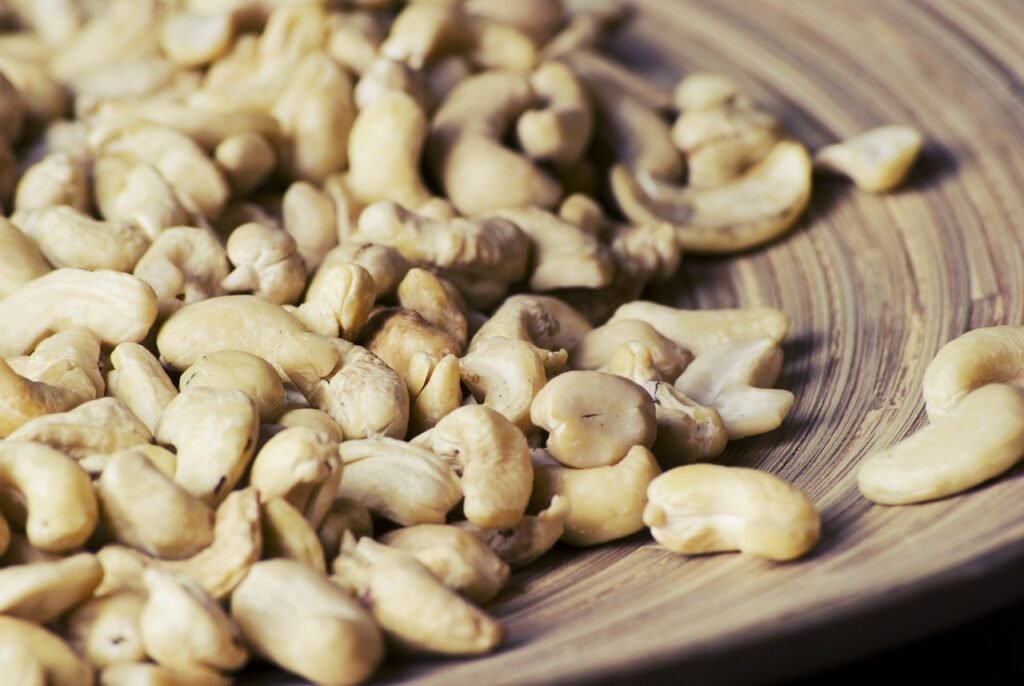
Overview
Nuts are a fantastic source of plant-based protein, healthy fats, fiber, and essential nutrients, making them a great addition to any diet. Whether you’re looking to increase your protein intake, improve muscle recovery, or simply enjoy a nutritious snack, nuts provide a simple and effective way to meet these goals. In this post, we’ll explore some of the best high-protein nuts, discuss their unique nutritional benefits, and offer practical ways to incorporate them into meals and snacks.
Why Choose Protein-Rich Nuts?
Nuts are among the most convenient, versatile, and nutrient-dense foods available. Each type offers a unique profile of proteins, fats, and essential vitamins and minerals, making them a valuable addition to a balanced diet. Unlike animal protein sources, nuts come packed with fiber, antioxidants, and heart-healthy fats, supporting various aspects of overall health. Adding these high-protein nuts to your diet can help satisfy hunger, boost energy, and provide essential nutrients your body needs.
Let’s take a closer look at some of the top protein-rich nuts and their nutritional profiles
Table of Contents
Almonds
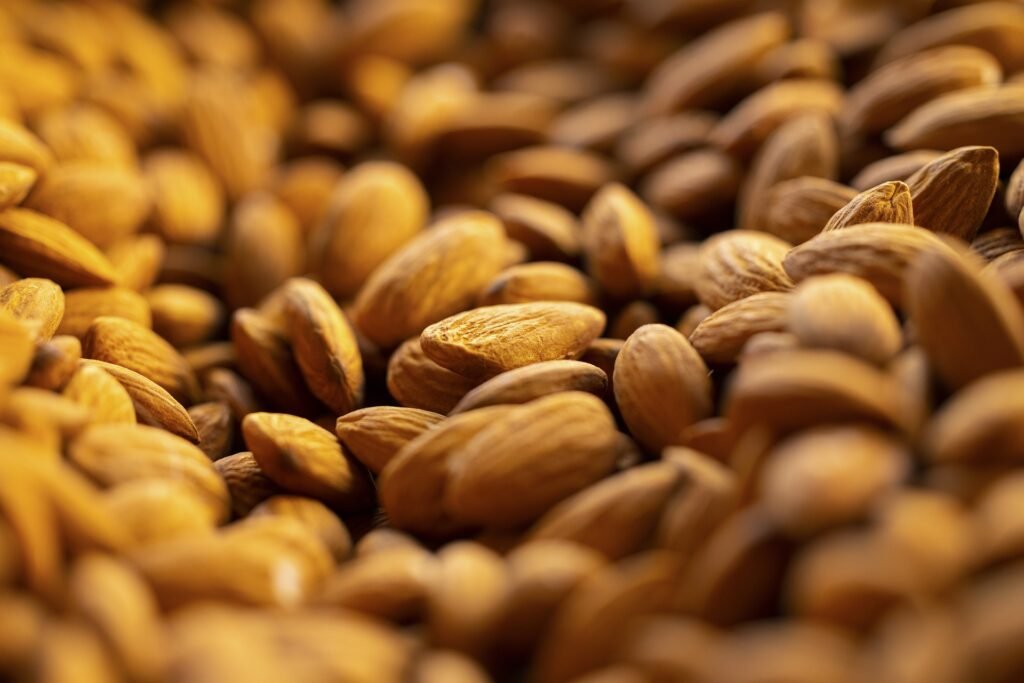
Almonds are technically seeds but are often regarded as nuts due to their texture and taste. They’re highly versatile and are available in various forms—whole, sliced, slivered, raw, or roasted. Almonds are known for their impressive fiber content and antioxidant-rich skin, which can protect cells against damage.
Nutrition per 1 oz (28g) Serving:
- Protein: 6.07 grams
- Fat: 14.49 grams
- Carbohydrates: 5.67 grams
- Fiber: 3.06 grams
Whole almonds make a convenient high-protein snack. You can also use almond flour to add protein to baked goods like muffins, pancakes, or even bread. For a protein-packed twist, try almond butter spread on whole-grain toast or mixed into smoothies.
Pistachios
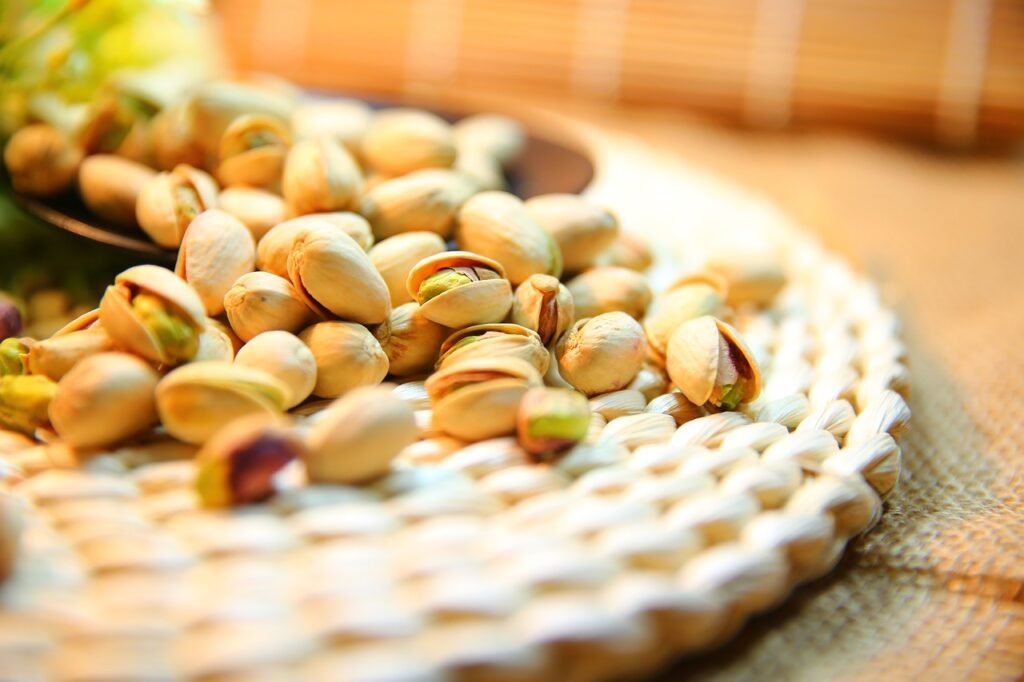
Related : Health Benefits of Eggs
Known for their vibrant green color and sweet, nutty taste, pistachios are lower in calories but still high in protein. They offer a favorable amino acid profile that supports heart health, and their combination of fiber and healthy fats makes them satisfying and nutritious.
Nutrition per 1 oz (28g) Serving:
- Protein: 5.81 grams
- Fat: 12.76 grams
- Carbohydrates: 7.85 grams
- Fiber: 1.98 grams
Pistachios are perfect as a standalone snack or can be added to salads, baked goods, or savory dishes. For a crunchy topping, sprinkle chopped pistachios over yogurt or oatmeal.
Cashews
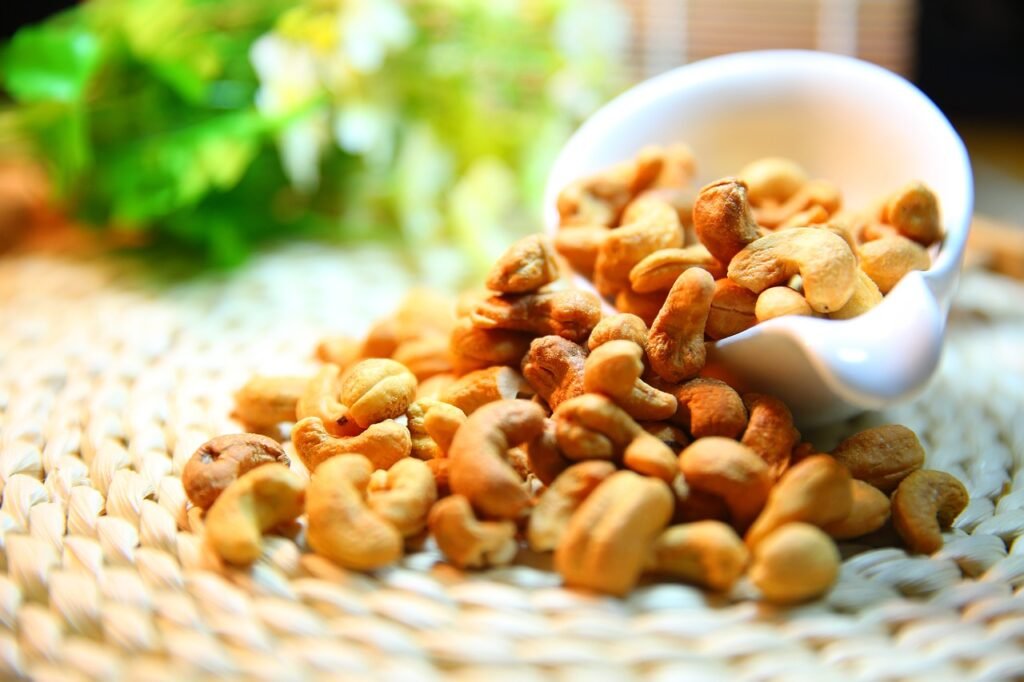
Cashews are seeds from the tropical cashew tree, offering a creamy texture and rich flavor. They are excellent sources of copper and magnesium, two minerals that support immune health, bone strength, and overall wellness.
Nutrition per 1 oz (28g) Serving
- Protein: 4.93 grams
- Fat: 11.03 grams
- Carbohydrates: 10.29 grams
- Fiber: 1.16 grams
Cashews can be enjoyed raw or roasted, making them a delicious snack or a great addition to stir-fries and salads. You can also try cashew milk or use them in smoothies for a creamy, protein-rich drink
Pine Nuts
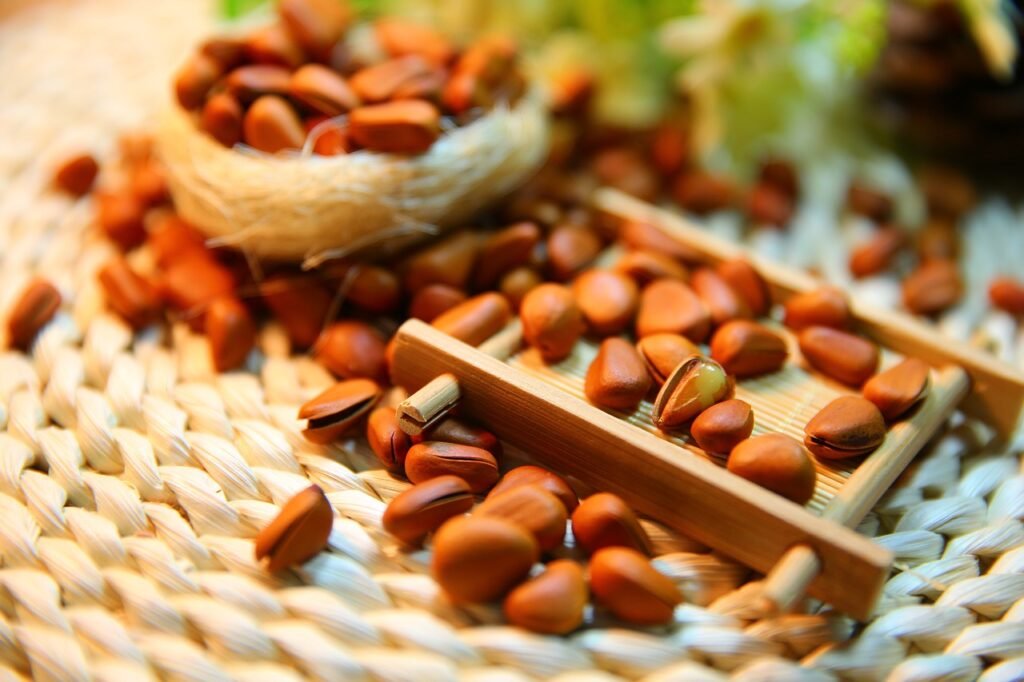
Pine nuts are actually seeds that come from certain species of pine trees. These nuts are particularly high in omega-3 fatty acids, which can help support heart health and reduce inflammation.
Nutrition per 1 oz (28g) Serving:
- Protein: 4.45 grams
- Fat: 17.38 grams
- Carbohydrates: 5.27 grams
- Fiber: 1.11 grams
Pine nuts can be eaten raw, toasted, or used to make pesto for pasta or sandwiches. Their unique, slightly buttery flavor also makes them a great topping for salads
Related : The Worst Foods for Your Brain
Walnuts
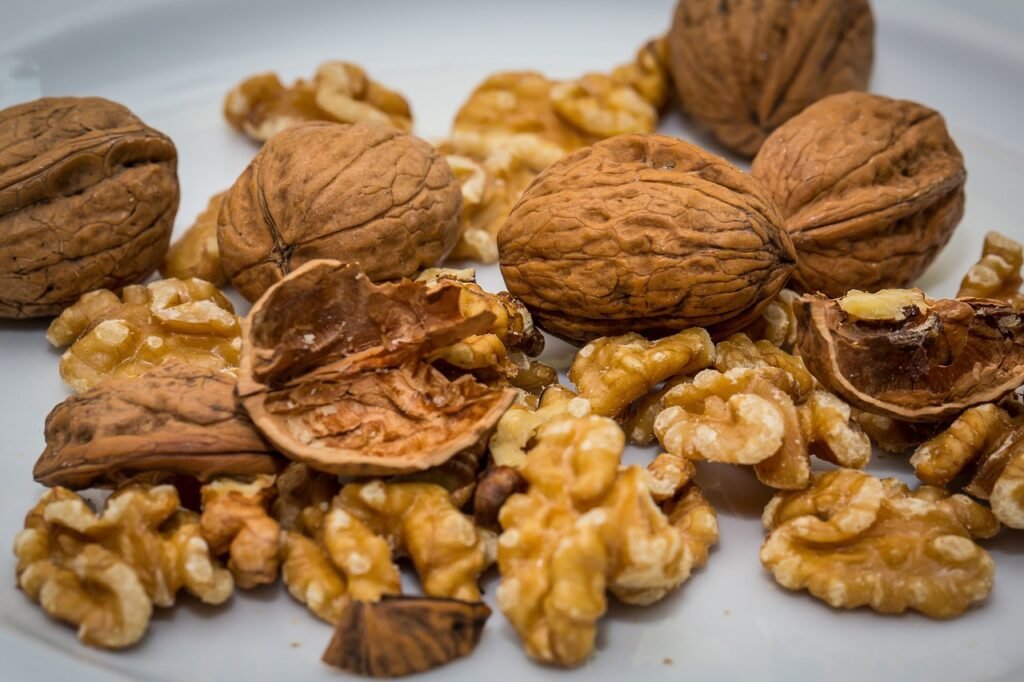
Walnuts are high in alpha-linolenic acid (ALA), a plant-based omega-3 fatty acid that’s beneficial for heart health. They also have a brain-like shape, leading to the belief that they’re good for brain health.
Nutrition per 1 oz (28g) Serving:
- Protein: 4.14 grams
- Fat: 18.5 grams
- Carbohydrates: 3.89 grams
- Fiber: 2 grams
Add chopped walnuts to baked goods like banana bread or muffins, or use them in vegetarian dishes like veggie burgers. They’re also excellent as a topping for yogurt or oatmeal.
Brazil Nuts
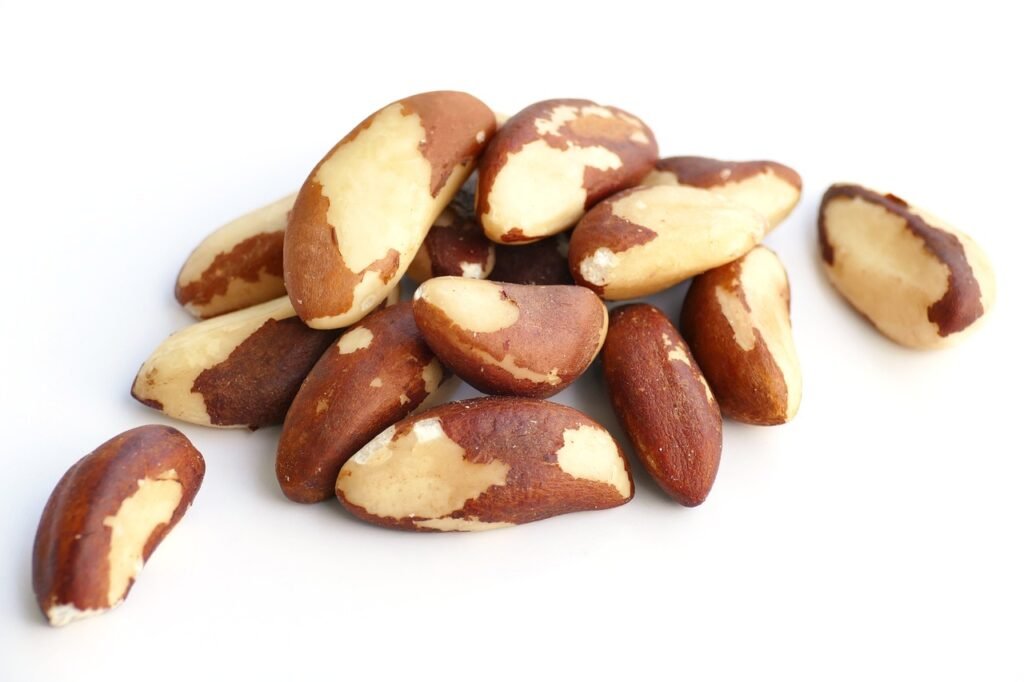
Brazil nuts are unique in size and nutrient profile. They are one of the highest dietary sources of selenium, an essential antioxidant that supports immune function and thyroid health.
Nutrition per 1 oz (28g) Serving:
- Protein: 4.05 grams
- Fat: 19.02 grams
- Carbohydrates: 3.32 grams
- Fiber: 2.13 grams
Brazil nuts make an ideal snack on their own. You can pair them with dried fruit for a healthy trail mix or chop them up and add them to granola for extra crunch and nutrition
Hazelnuts
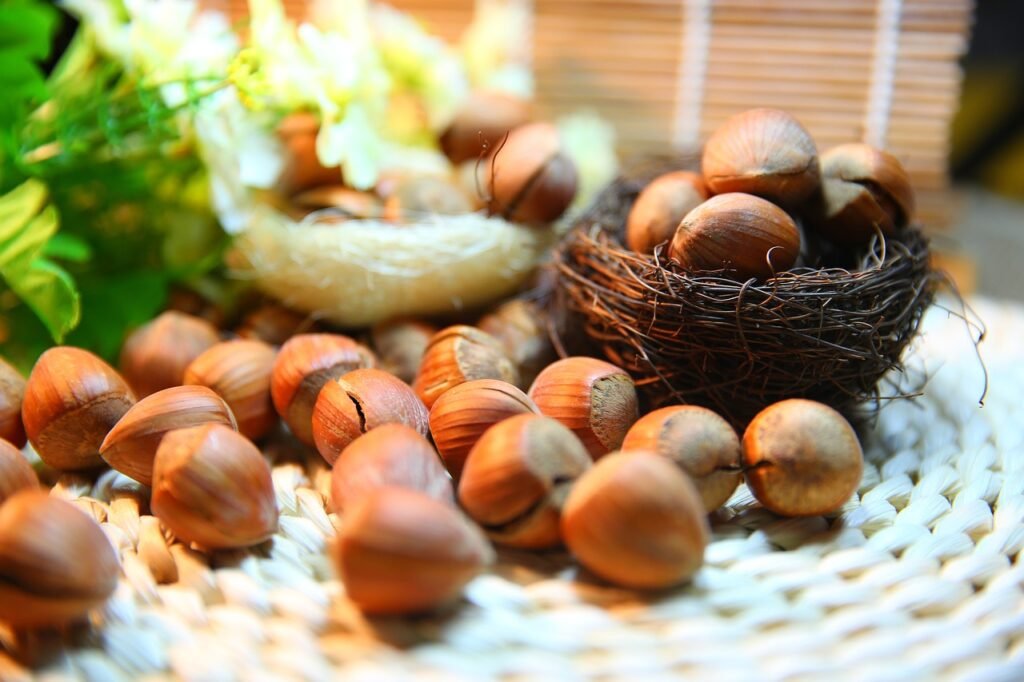
Hazelnuts have a rich, buttery flavor and are frequently used in desserts. They are a good source of omega-3 fats and vitamin E, providing powerful antioxidants that protect cells against damage.
Nutrition per 1 oz (28g) Serving:
- Protein: 3.83 grams
- Fat: 15.17 grams
- Carbohydrates: 7.51 grams
- Fiber: 2.38 grams
Hazelnuts are delicious when eaten on their own or used in spreads like hazelnut butter. You can also add them to baked goods or use them as a topping for oatmeal
Related : The Best Beverages to Boost Your Brain Health
Peanuts
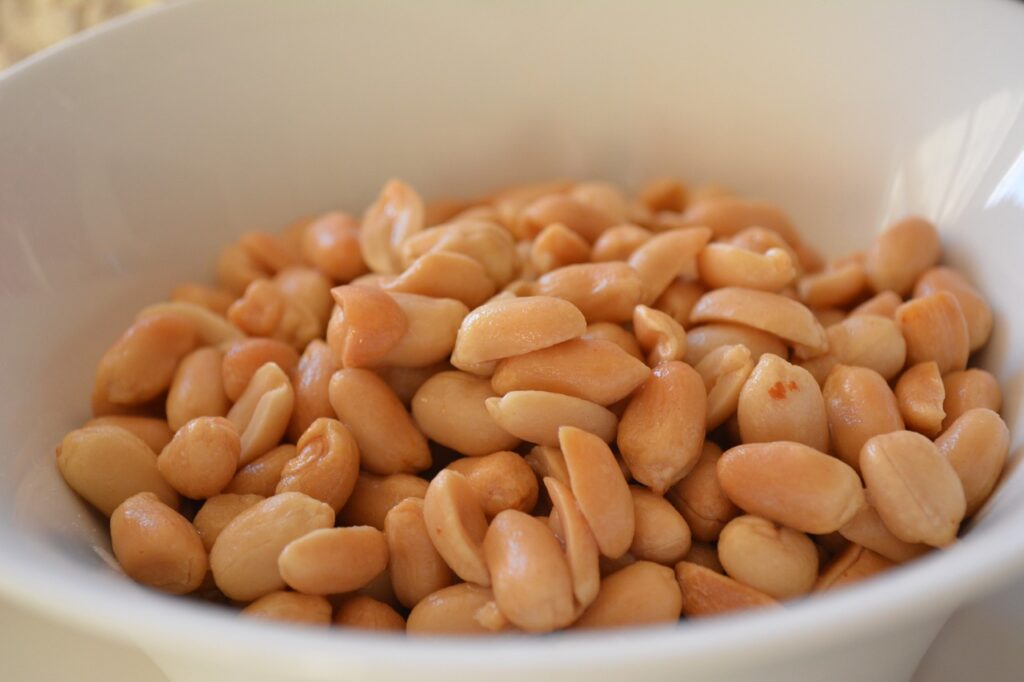
Although technically a legume, peanuts are often classified with nuts due to their high protein content and similar nutritional profile. They’re an excellent source of biotin, which supports metabolism and energy production.
Nutrition per 1 oz (28g) Serving:
- Protein: 6.58 grams
- Fat: 14.18 grams
- Carbohydrates: 4.57 grams
- Fiber: 2.4 grams
Peanut butter on whole-grain toast with bananas is a classic option. You can also blend peanut butter into smoothies for a creamy protein boost.
Pumpkin Seeds
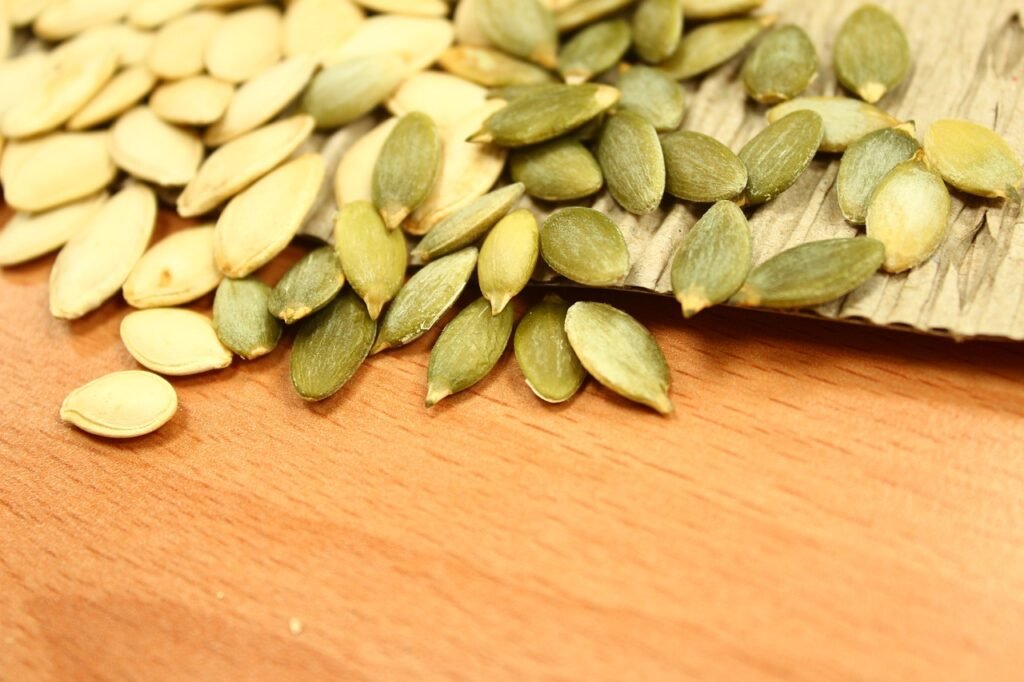
Pumpkin seeds, also known as pepitas, are particularly high in protein and provide essential minerals like zinc, magnesium, and selenium.
Nutrition per 1 oz (28g) Serving:
- Protein: 10 grams
- Fat: 5 grams
- Carbohydrates: 4 grams
- Fiber: 1 gram
Add pumpkin seeds to salads, homemade granola, or yogurt. Their mild flavor and crunch make them a versatile addition to many dishes
Top Protein-Rich Nuts
Here’s a quick ranking of these nuts based on their protein content per ounce:
- Pumpkin Seeds – 10g protein
- Peanuts – 6.58g protein
- Almonds – 6.07g protein
- Pistachios – 5.81g protein
- Cashews – 4.93g protein
Related : The Best Time of Day to Drink Coffee
The Takeaway
Incorporating protein-rich nuts into your diet is an easy way to add both flavor and nutrition to your meals. They provide essential nutrients and help keep you satisfied between meals. Try to include a variety of nuts in your diet to get a balanced intake of different nutrients and enjoy their unique flavors. Remember to choose unsalted or lightly salted varieties and consume them in moderation as part of a healthy, balanced diet
Frequently Asked Questions
Which nuts are highest in protein?
Pumpkin seeds, peanuts, almonds, and pistachios are among the highest in protein. Pumpkin seeds top the list with around 10 grams of protein per ounce, followed by peanuts (6.58g), almonds (6.07g), and pistachios (5.81g).
Are nuts a good source of protein for vegetarians and vegans?
Yes, nuts are an excellent plant-based protein source, making them ideal for vegetarians and vegans. They also provide healthy fats, fiber, vitamins, and minerals, adding more nutritional benefits beyond protein.
How many nuts should I eat daily?
A serving size is typically around 1 ounce (about a small handful), which can range from 10-30 nuts depending on the type. Eating 1-2 ounces daily can provide a good protein boost without excessive calories.
Do roasted nuts lose protein compared to raw nuts?
Roasting nuts doesn’t significantly reduce their protein content, though it may impact some of the vitamins. Choosing unsalted roasted nuts can be a good option if you prefer them to raw nuts
Are peanuts as healthy as other nuts?
Though technically a legume, peanuts offer similar nutritional benefits to tree nuts. They’re high in protein, healthy fats, and essential nutrients, making them a valuable part of a balanced diet.
Are nuts good for weight loss?
Yes, when eaten in moderation, nuts can aid weight loss due to their protein, healthy fat, and fiber content, which helps you feel full longer. However, they are calorie-dense, so portion control is key.
Can nuts cause allergies?
Yes, nut allergies are common and can be severe. If you’re allergic to one type of nut, consult with a healthcare provider before consuming others, as cross-reactivity between nut types is possible











